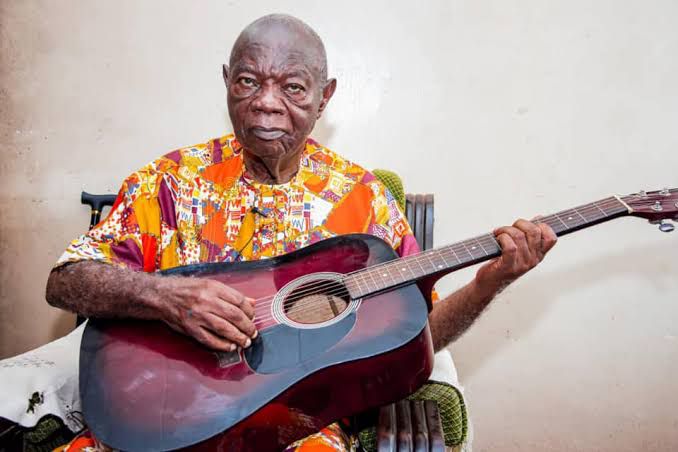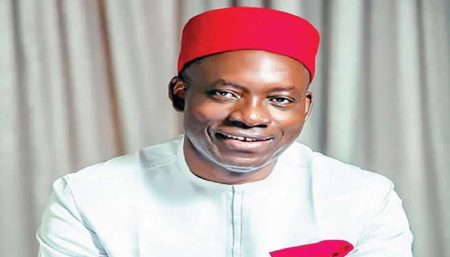Mike Ejeagha, a venerable figure in Nigerian highlife music, passed away at the age of 95, leaving behind a legacy that resonated far beyond the realm of entertainment. His death, following a prolonged illness, marked the end of a remarkable career spanning over five decades, during which he became a cultural icon, particularly within the Igbo community. Ejeagha’s music wasn’t merely a form of entertainment; it served as a powerful medium for preserving and transmitting Igbo cultural values, customs, and narratives. His storytelling prowess, embedded within his distinctive musical style, captivated audiences and inspired generations to connect with their heritage. His passing prompted an outpouring of grief and tributes from prominent figures across the nation, including President Bola Tinubu, former Vice President Atiku Abubakar, state governors, and cultural leaders.
President Tinubu, in a heartfelt statement, acknowledged Ejeagha’s profound contribution to Nigerian culture. He emphasized the musician’s unique ability to utilize music as a tool for cultural preservation and promotion, highlighting his enduring impact on generations of Nigerians. Tinubu further expressed his hope that Ejeagha’s spirit and the values embedded within his music would continue to inspire positive actions towards nation-building. The president’s words underscored the significance of Ejeagha’s work, not only as an artist but also as a cultural ambassador.
Former Vice President Atiku Abubakar also paid tribute to Ejeagha, noting the resurgence of the artist’s popularity in his later years. Abubakar specifically acknowledged the role of comedian and content creator Brain Jotter, whose viral dance video featuring Ejeagha’s 1983 track “Ka Esi Le Onye Isi Oche” brought the veteran musician back into the spotlight. This unexpected revival of his music allowed Ejeagha to experience a renewed appreciation for his work before his passing, a poignant reminder of the power of digital media to connect generations and celebrate cultural heritage. Abubakar’s words underscored the timeliness of Jotter’s contribution, allowing Ejeagha to receive well-deserved recognition and appreciation in his final years.
Governor Peter Mbah of Enugu State, Ejeagha’s home state, expressed deep sorrow at the passing of the music icon. Mbah described Ejeagha as an unassuming and easygoing personality whose fanbase extended beyond Nigeria’s borders. He lauded Ejeagha’s humility and warmth, emphasizing the profound impact the musician had on those who had the privilege of knowing him personally. Mbah’s words painted a picture of a man whose genuine nature and artistic brilliance combined to create a beloved figure in the community and beyond. The governor’s tribute highlighted not only Ejeagha’s artistic achievements but also his admirable personal qualities.
Hannatu Musawa, the Minister of Art, Culture, Tourism, and Creative Economy, further underscored Ejeagha’s significance in Nigerian cultural history. She described him as a legend whose contributions through music and folklore were irreplaceable, emphasizing his vast discography of over 300 recordings archived in the National Archives of Nigeria. This extensive body of work, Musawa noted, serves as a testament to Ejeagha’s unwavering dedication to preserving and promoting Nigeria’s rich cultural heritage. Her statement highlighted the importance of recognizing and celebrating the contributions of cultural icons like Ejeagha to the nation’s artistic and historical tapestry.
Mike Ejeagha’s music transcended mere entertainment; it functioned as a living archive of Igbo culture, transmitting traditions, values, and stories through melodic narratives. His songs often delved into themes of everyday life, social commentary, and philosophical reflections, resonating deeply with listeners who found solace, wisdom, and entertainment in his work. His ability to weave together captivating melodies with insightful lyrics contributed to his enduring popularity, ensuring that his music remained relevant and appreciated across generations. The widespread outpouring of grief following his death is a testament to his enduring impact on Nigerian music and culture.
The tributes from prominent figures across various sectors of Nigerian society further solidify Ejeagha’s status as a national treasure. Their words highlight not only his artistic achievements but also his personal qualities, emphasizing his humility, warmth, and genuine love for his culture. The recognition of his contributions by figures like President Tinubu, former Vice President Atiku Abubakar, and the Minister of Culture underscores the profound impact Ejeagha had on the nation’s cultural landscape. His legacy extends far beyond his extensive discography; it resides in the hearts and minds of those whose lives were touched by his music and his unwavering dedication to preserving Igbo cultural heritage. Mike Ejeagha’s music will continue to serve as a source of inspiration, education, and cultural pride for generations to come.














